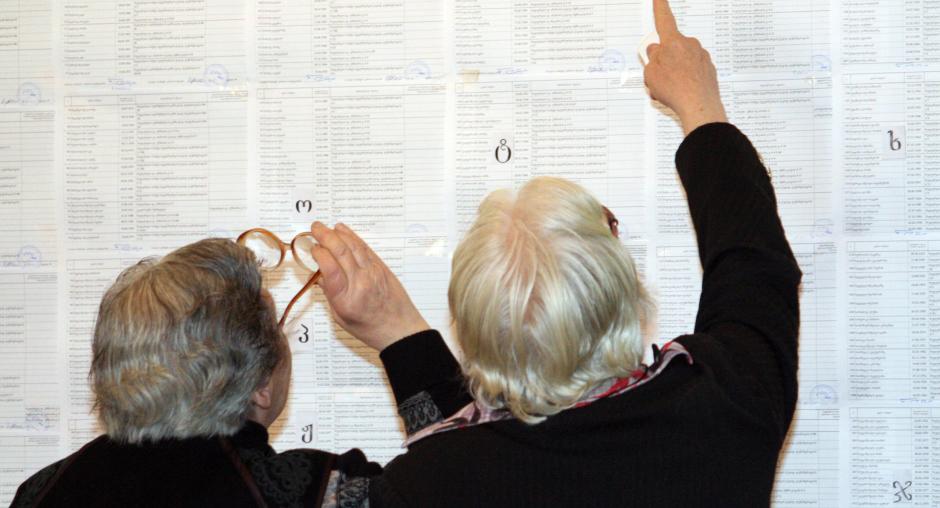Parliamentary Elections, 21 May 2008

Type:
Country:
Mission at a glance
- Head of Mission: Ambassador Boris Frlec (Slovenia)
- 14 core staff based in Tbilisi
- 28 long-term observers deployed in the regions
- 350 short-term observers requested from OSCE participating States
Mission schedule
- 10 April: Mission opens
- 16 April: Brieifing of long-term observers
- 17 April: Deployment of long-term observers
- 18-19 May: Briefing of short-term observers
- 21 May: Election day
- 22 May: Press conference
Following an invitation from the Georgian authorities, and based on previous findings and conclusions of election observation missions, especially those related to the 5 January 2008 presidential election, the OSCE/ODIHR deployed an Election Observation Mission (EOM) to observe the 21 May 2008 parliamentary elections.
The elections were appointed by a Presidential Decree following a plebiscite held in parallel to the 5 January presidential election, in which some 67% of Georgian voters voted in favour of holding parliamentary polls in spring rather than autumn 2008.
In the run-up to the elections, the legal framework was substantively reviewed. Amended election legislation provides inter alia for the multi-party composition of election administration at all levels, a reduced 5 per cent threshold for party representation in Parliament, as well as alters the electoral system itself. The new parliament consists of 75 majoritarian deputies elected in single-mandate constituencies and another 75 deputies elected through a proportional party-list system.
The OSCE/ODIHR Election Observation Mission and the OSCE Mission to Georgia, headed by Ambassador Terhi Hakala, operate separately under their specific mandates.
Long-term observation
The EOM, headed by Ambassador Boris Frlec of Slovenia, consisted of 14 international staff based in Tbilisi drawn from 12 OSCE participating States. Twenty-eight long-term observers were deployed throughout the country.
The mission assessed the election for its compliance with principles for democratic electoral processes, including commitments agreed to by all the OSCE participating States, as well as national legislation. Observers closely monitored campaign activities, media coverage, the legislative framework and its implementation, the media situation, the work of the election administration and relevant government bodies, and the resolution of election disputes.
Election day
The OSCE/ODIHR requested 350 short-term observers to be deployed immediately prior to the 21 May elections. The short-term observers were deployed throughout the country in multinational teams of two to monitor the opening of polling stations, the voting, the counting of ballots, and the tabulation of results. The day after the elections, the Election Observation Mission issued a statement of preliminary findings and conclusions. A final report on the observation of the entire electoral process will be issued approximately eight weeks after the end of the observation mission.
Previous elections
The OSCE/ODIHR has observed a number of electoral events in Georgia, including: parliamentary elections in 1999 and 2003, repeat parliamentary elections in 2004, presidential elections in 2000 and 2004, municipal elections in 2006, and most recently the extraordinary presidential election of 5 January 2008.
